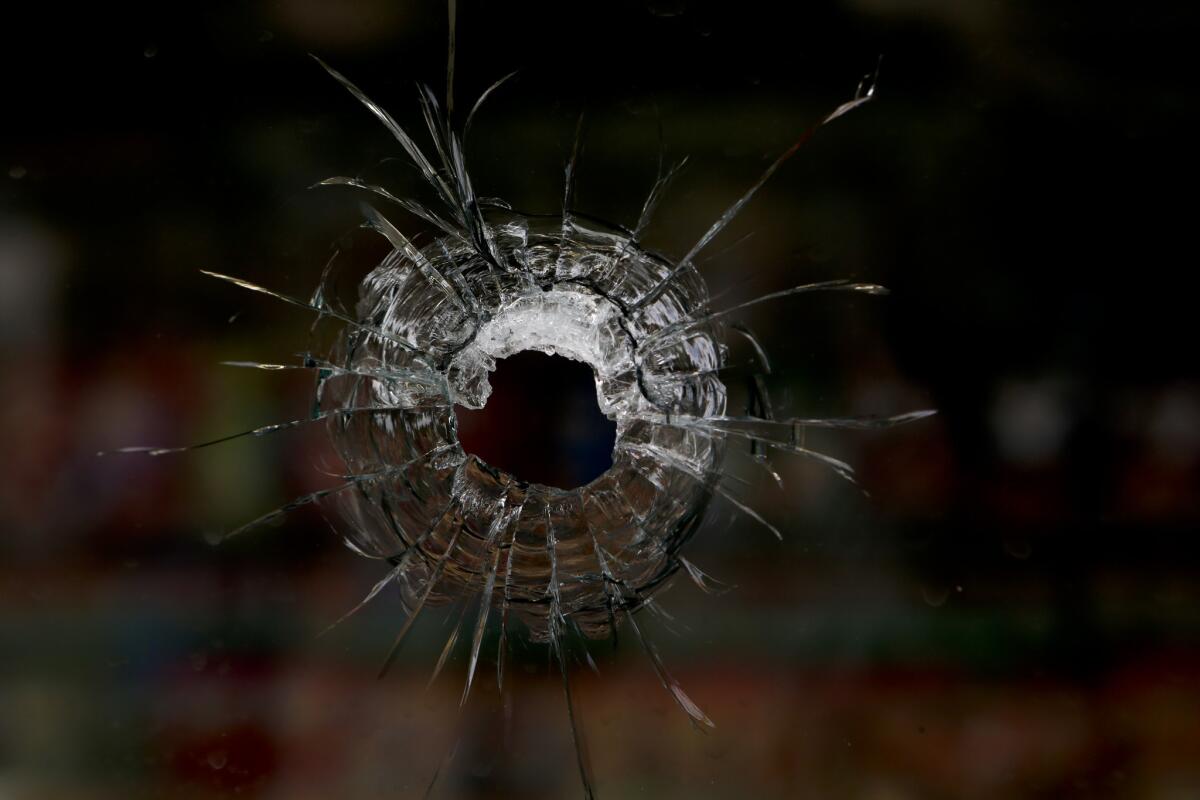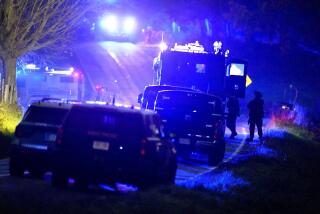Opinion: A silver lining from the Isla Vista tragedy: New power to take guns from the unstable

- Share via
The pro-gun crowd will be foaming, but Gov. Jerry Brown today signed into law AB 1014, by Assemblywoman Nancy Skinner (D-Berkeley), that will let family members or police seek a court order to temporarily remove lawfully owned weapons from the home of someone deemed at risk of committing violence.
The Gun Violence Restraining Order bill arose after the horror of the Isla Vista rampage this year, and stands as a common-sense approach to dealing with a persistent problem in American society: mentally unstable individuals in possession of firearms.
And while the gun-rights folks dislike the measure and invent all sorts of abuse scenarios -- ex-spouses or ex-lovers dropping a dime on each other out of spite -- the law has protections that would make that difficult.
More generally, this is the kind of modest law aimed at protecting the public safety that does not impinge on the rights that gun advocates insist they have to own guns (I’ve addressed that in part here). And it is just the kind of reasonable approach to a deadly problem that gun owners ought to embrace.
It’s an issue, too, that the Times editorial board has addressed before. This is what we said Sept. 2 when we urged Brown to sign the bill:
Among the many tragedies that intersected during Elliot Rodger’s violent rampage near Santa Barbara in May — killing six people and wounding more than a dozen others before he killed himself — was that Rodger’s parents had sought police help as their son’s life spiraled out of control. Unfortunately, until he started killing people, Rodger violated no law that would have justified police action.
That frustration was widely felt, and the Isla Vista tragedy moved the Legislature to approve a measure last week that would let relatives seek a court order to confiscate weapons from a family member who displays signs of violence. At its heart, the law extends the authority police already have to disarm someone under a domestic violence restraining order. It’s a sane measure, one that Gov. Jerry Brown should approve.
AB 1014 empowers a judge to issue a “gun violence restraining order” after being presented with reasonable cause to believe a gun owner could “in the near future” harm himself or others.
Under its authority, police would be allowed to search the subject’s residence and remove weapons. Guns owned by another resident of the home could also be confiscated unless they are secured beyond the reach of the restrained person, such as in a locked gun case.
The legislation arose after it was discovered that Rodger, despite a history of mental illness, legally bought all three of the guns he used. Notably, they were only part of his arsenal: Rodger killed his first three victims with knives, and he injured several others by striking them with his car.
That has prompted some critics of this legislation to argue that it would not have prevented the rampage that inspired it. That may be true — or at least partly true — but it misses the larger point that mentally ill people with violent tendencies should not possess firearms. Gun-rights advocates also argue unpersuasively that this law infringes on the 2nd Amendment.
The U.S. Supreme Court, in the same ruling that found an individual right to bear arms in the Constitution, explicitly left room for restrictions of that right and seemed almost to anticipate this legislation. “Nothing in our opinion,” the court wrote in its 2008 Heller ruling, “should be taken to cast doubt on long¿¿standing prohibitions on the possession of firearms by felons and the mentally ill.”
That’s especially true here, since the bill before the governor also provides for the restraining order to be lifted after a hearing if a judge concludes it is not justified, and the law requires it to end after a year unless the judge renews the order. The law also makes it a misdemeanor to file a false petition, which offers protection against spurious requests.
This is a reasonable approach that the gun lobby should join in supporting, and that Brown should sign into law.
Follow Scott Martelle on Twitter @smartelle.
More to Read
A cure for the common opinion
Get thought-provoking perspectives with our weekly newsletter.
You may occasionally receive promotional content from the Los Angeles Times.










